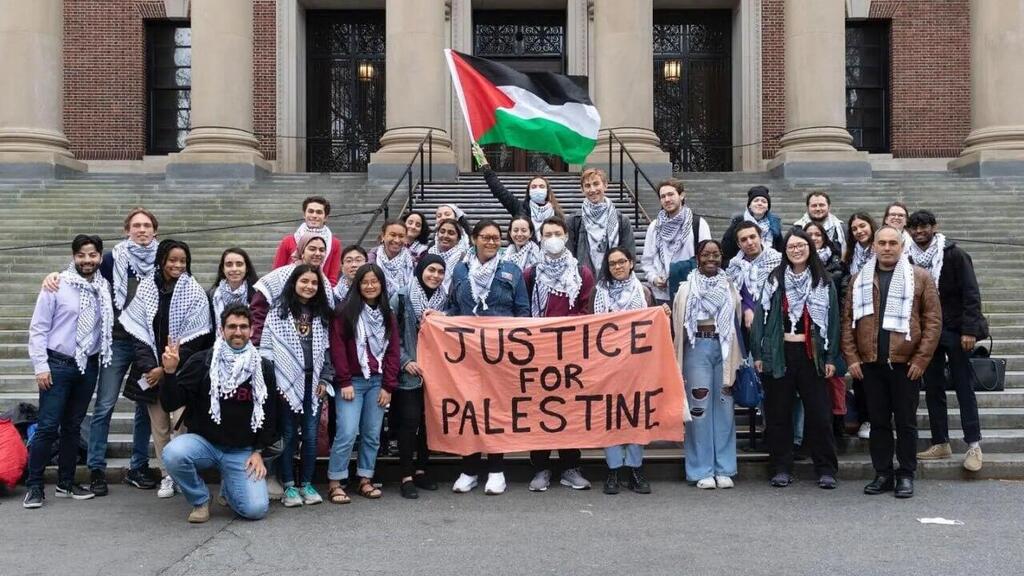Getting your Trinity Audio player ready...
The rise in antisemitism worldwide, particularly in the U.S., must be a top priority for the Israeli government. While I believe the current acts of antisemitism on campuses do not pose a real threat to the existence of Jewish and Israeli people, they certainly reflect concerning trends among the new generation that we will have to address in the near future. It is important to understand the magnitude of the antisemitism we see on U.S. campuses and act now in order to change the way people think about Israel and Jewish people, instead of shutting it down until the next explosion.
One of Israel’s strengths lies in its economic stability and strong business connections with the largest markets in the world. This is why I would like to focus on the economic impact of this situation. It’s important to understand that the recent rise in antisemitism on campuses is just a glimpse of the larger economic challenges that Israel and Jewish people worldwide may face in the next 10-15 years.
Here's why:
In the U.S., most leading companies recruit their next generation of employees directly from top universities like Columbia, NYU, UPenn and others. These universities take pride in their strong relationships with major U.S. companies such as Apple, Google, Microsoft and many others that consistently hire from Ivy League universities and have for many years.
However, a growing number of antisemitic acts by students on U.S. campuses could become a significant issue in the near future. Some of these students will inevitably play crucial roles in the U.S. economy, potentially impacting Israel's economic ties, business relationships and global market presence. This could have a profound effect on the Israeli economy.
Regarding anti-Israel/Jewish protesters and their current demands from universities, their call for divestment from companies affiliated with Israel is unrealistic and unlikely to be fulfilled. Most major global companies have some level of interaction with Israel, whether through collaborations with Israeli firms, research and development centers in Israel, or the use of Israeli products. Universities are unlikely to meet the protesters' demands. However, the issue will become more pressing as these students will hold leadership positions in 10-15 years. This emphasizes the need to begin changing their perspectives and attitudes toward Israel now.
Several solutions can be considered to address this issue:
First, the U.S. government must impose financial sanctions on universities that fail to combat antisemitism on their campuses. Federal funds should be withheld until these universities demonstrate significant improvements in their handling of antisemitism cases.
<< Get the Ynetnews app on your smartphone: Google Play: https://bit.ly/4eJ37pE | Apple App Store: https://bit.ly/3ZL7iNv >>
Second, the Israeli government must pressure the U.S. government to prioritize the fight against antisemitism as a critical diplomatic mission, incorporating it into negotiations on war matters such as humanitarian support or other related issues.
Furthermore, we must onboard U.S. company leaders to publicly condemn antisemitism and stop recruiting students who engage in antisemitic activities, as this does not align with their companies’ values. This action will likely impact the relationships that these universities maintain with leading U.S. firms, potentially impacting the universities' reputations if they do not actively fight against antisemitism.
 Dr. Amit Serusi
Dr. Amit SerusiFinally, the Israeli government must continue to pursue global economic collaboration. As a small country, Israel must remain integrated in the global economy. Efforts by Minister of Education Yoav Kisch to bring native-born academic scientists and researchers back to Israel, though well-intentioned, suggest a step in the wrong direction. Rather than isolating ourselves, we must strive to ensure Israel continues to be a leader in the global economy. We must fight back by changing the way the world thinks about Israel and the Jewish people. While we focus on defending our country from within, we must win the broader war for a better future.
- Dr. Amit Serusi is a strategic consultant and angel investor; He is an Israeli-born citizen residing in Philadelphia


